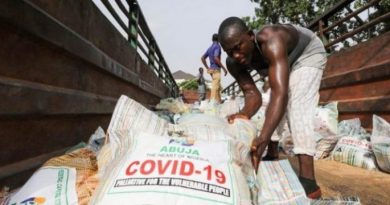President Sahle-work’s Message on 2023 International Women’s Day
ADDIS ABABA – “We need to be cautious not to make women’s issues a tired agenda or box ticking,” urged Ethiopia’s President Sahlework Zewde.
President Sahlework said this in her message to all Ethiopian women in the country and in the diaspora on the occasion of the International Women’s Day.
Here is the full text
“To all Ethiopian women in the country and in the diaspora, happy International women’s day.
As have often underscored, Women’s Day should not be observed one day a year, but should be of concern throughout 365 days.
But this day is our reminder, a wake-up call o ook back atthe past. the present and the future in terms of women’s equality, participation and human rights
The past few years have been difficult for our country. The covid-19 pandemic, conflicts, war and drought have plagued our country, and we have only just begun to emerge from these large-scale problems.
Women suffer from adversities They face not only as individuals but also as mothers and heads of households. It is well known that women tend to be selfless as evidenced by their neglect of their own concerns. I have no doubt that there are women in all of our lives who can bear witness to this.
The aforementioned challenges disrupt the gains in terms of girls’ education and women’s economic participation, eradication of harmful traditional practices, fighting sexual and physical violence and many other areas.
Though not widely practiced, that is why we insist that all policies and development programs ought to be examined by a gender perspective.
Women’s issues should always be on the agenda. There is an urgent need to take women’s context and utilizing a gender lens when planning, implementation and evaluation. We need to be cautious not to make women’s issues a tired agenda or box ticking.
The key to break the cycle is women organizing around a common agenda. The struggle for rights cannot be done in a solo. Women must have a strong collective agenda. Be it discrimination, exclusion, violence against women, or any physical or psychological violence… all these are targeted against all women, regardless of wealth, education, power, age, race, religion, and ideology.
Although the magnitude of the damage might vary, every woman, at any level, experiences it. We experience it.
We need a strong association that works to make the women’s agenda a public concern, seeks solutions, and brings together the knowledge and experience of highly accomplished Ethiopian women living abroad for this purpose. We need to strengthen the existing ones and prioritize collaboration instead of following a fragmented approach.
It is necessary to engage in domestic resource mobilization; in income generating activities that enable women’s associations and organizations to cover their expenses: and creatively engage in activities that require minimal budgets. Programs that depend on foreign aid are not sustainable.
We should also be always alert to the possibility of losing gains. We cannot bring change if we do more of the same and if we are easily satisfied with small successes and believe that we have accomplished our task. We need to rethink our solutions, come up with new ideas and approaches.
A role model and hope for a woman is another woman. Let’s identify, know and magnify those role models. Those of us who reached that level must lend a shoulder to climb on. Let’s also recognize, respect and put a spotlight on those women who help others quietly and brings a light of hope through their work.
In order to reinforce our ties with African countries, we need to strengthen the Ethiopian chapter of the African Women Leaders Network “AWLN”, and encourage experience sharing.
On the occasion of this women’s month, I urge everyone to take a stock, reflect on the past, work hard at present and to pause and plan for the future.
Finally, the Ethiopia we aspire to build is one, where women and girls are not ashamed of who they are as a woman and of their self confidence and assertive characters. We need to strive to meaningfully engage them in national priorities and agendas, and let their voices be heard. We will have a long way to go.”








